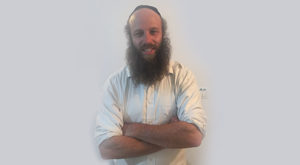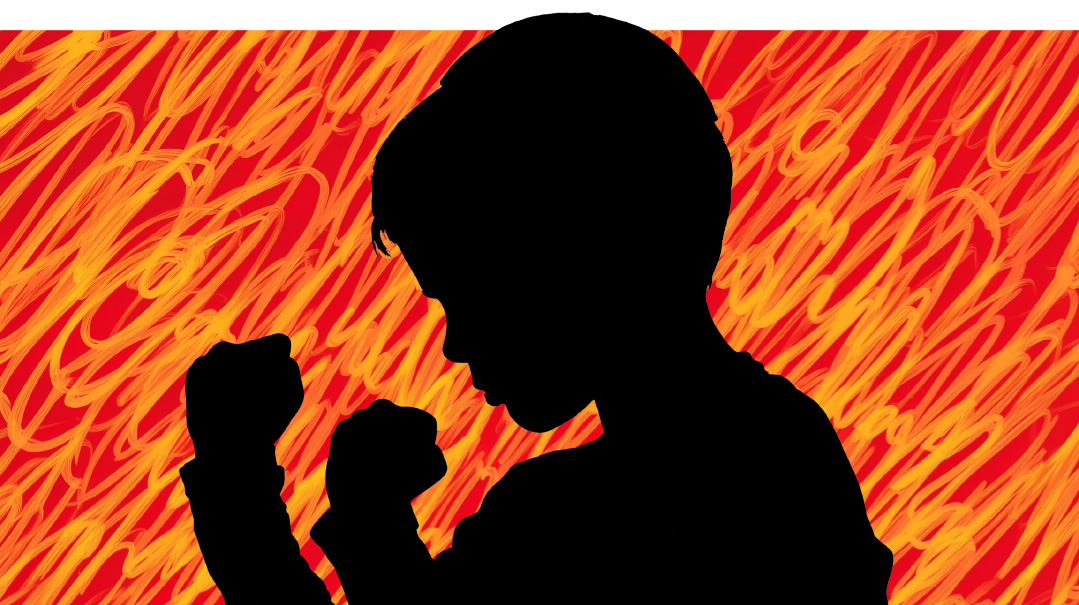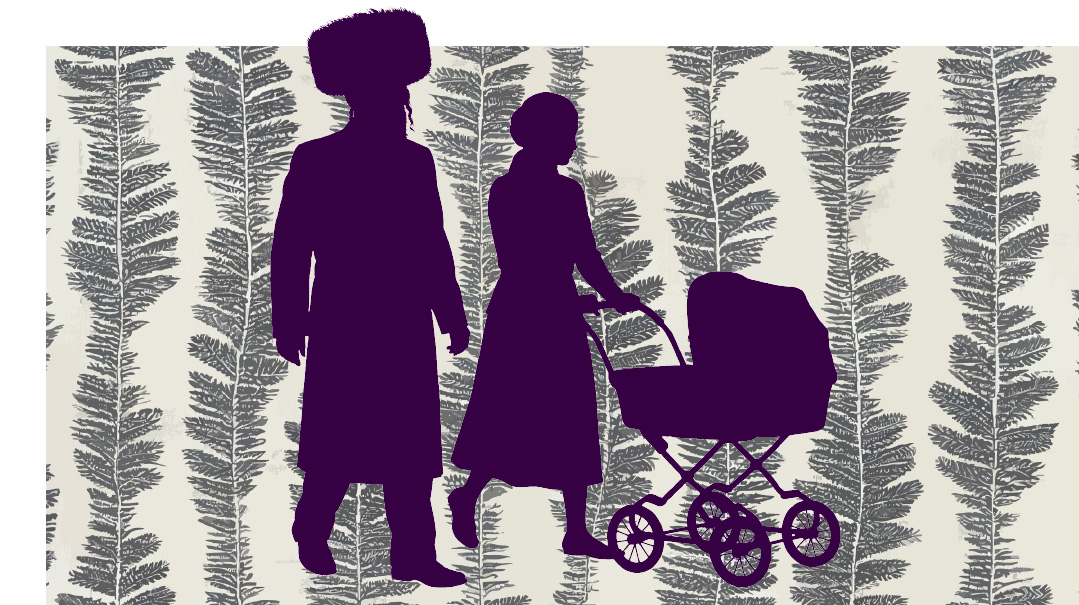Selective Mutism
| March 1, 2022Selective mutism is a form of social anxiety. It’s not the same as being shy

As told to Mindel Kassorla
People joke that once their kids started talking, they couldn’t get them to stop. We had the opposite problem.
Yaakov was a calm toddler with a long attention span. Give him a peg puzzle, and he was busy for an hour. It was easy to have him home, so I didn’t send him out right away. With his first exposure to a larger social setting, we realized something wasn’t right.
Yaakov’s morah told us he preferred to sit on her couch and observe the other kids, rather than play with them. He probably just needs time to get used to it all, I thought. And anyway, he was doing everything else — projects, lunch. He’d be fine.
Chanukah-time I checked in again. “Yaakov doesn’t talk to the other kids,” the morah said. “Or to me. If he wants a drink of water, he brings me his cup. He nods, but doesn’t say ‘yes.’ ”
Although Yaakov began speaking at a normal age, he had articulation issues from the start and got frustrated when we didn’t understand him. Maybe that’s why he wasn’t talking?
Still the morah’s report was puzzling; at home, even with his unclear speech, he did speak. Confused and nervous, I found my way to Chani Fried,* a sought-after speech therapist who was especially familiar with the special ed system in NY. She listened patiently as I described Yaakov’s issues and suggested that perhaps Yaakov had “selective mutism,” a condition in which a child doesn’t speak to certain people and/or at certain times.
Selective mutism is a form of social anxiety. It’s not the same as being shy (even though that’s how Yaakov might describe himself), and it needs to meet specific criteria. A child with selective mutism doesn’t necessarily have trouble with articulation (even though in his case he did). He’s also no less intelligent than other children. My son is actually really smart and converses perfectly with me at home.
Chani gave me a rundown of how to do exposure therapy, to help him feel comfortable enough in his environment to express himself verbally. I went to his playgroup twice a week and spent time with him in a separate room. Eventually, we invited in another kid or two, the ultimate goal being to get out into the main room.
Even though Yaakov’s morah was so accommodating, this was obviously a strange request for a parent to make, and it was hard not to feel self-conscious. On top of that, I had the inconvenience of sending my baby to a babysitter to make this work. All in all though, things were going pretty well. Yaakov was also working with a speech therapist on his pronunciation, and while he wouldn’t speak to her, he did seem to be learning sounds.
When the state went into lockdown midyear, we were stuck trying to help Yaakov improve on our own. With a lot of practice over those months, he cured himself of his speech impediment. Maybe when he returned to school he would be like every other kid?
At the end of that year, while he still wouldn’t open his mouth to the other children, he stopped staying on the couch when they came and even spoke to his morah on the phone in whispers. Things were moving — slowly but surely.
The following year, we sent Yaakov to a larger preschool where the teachers were sweet, but didn’t understand his condition — understandably so, since it’s not something you come across every day. When I asked how he was doing, they thought they were giving me nachas by telling me, “He’s a great kid. He gets along with everyone and never makes trouble. We wish all the kids were like him.” I don’t really think you wish that, I wanted to tell them.
Don’t get me wrong — I love my son! But they didn’t realize the problem. He was one of so many boys and was doing everything he was supposed to — or so they thought. As his mother, I was worried about him, his relationship with his classmates, his future. I didn’t want this condition to hold him back for life, and I understood that it could.
By asking specific, pointed questions, I brought the issues to their attention. “Does he talk to other boys?” “Which ones?” “How often?” That’s when they noticed that, yes, something was actually wrong.
At the end of that year, we made a firm decision to get on top of the situation. Due to various setbacks (including more lockdown time), we hadn’t progressed much. Two years had gone by, and Yaakov still wasn’t talking to his friends. The following year, we planned to send him to kindergarten — with a lot of tefillos, and of course, professional guidance. But we didn’t know where to turn.
We called Relief and they set us up to meet with a professional for a proper diagnosis and a treatment plan. It turned out that Yaakov’s case was mild. In more extreme situations, kids won’t even talk to people in their own home: babysitters, grandparents, etc. Yaakov would speak to some visitors, and he was even speaking in school — a little.
Exposure therapy, starting with a therapist at home and then moving into the school, was the recommended treatment. We were also told that while some people see results after a few months, we shouldn’t have any expectations because every situation is unique.
We’re now working with Rochel,* a therapist who we were referred to by Ruth Perednik (a top specialist on selective mutism). Rochel started coming to our house as a mere fly on the wall, having coffee with me in my kitchen while Yaakov played with my other children. She slowly formed a bond with Yaakov, and now she goes to his school twice a week to spend time with him in a side room.
The way we help Yaakov is subtle; he doesn’t even realize he’s getting therapy. I’m not tempted to nudge him. A friend of mine taught me how unhelpful that is. When she was young, she had selective mutism and her therapist tried to bribe her with candy — which was totally meaningless to her. We’ll do this at his own pace; I know I’m doing whatever I can for him.
We appreciate every triumph. We were once in a park, and he went on the monkey bars. Another boy climbed up and said, “Look how high I am!”
“Look at me!” Yaakov responded. I heard those three words and cried tears of joy.
Please never say
something about my son’s condition in front of him. He may be mute, but he’s not deaf.
Please do say
things that encourage me about his future. A friend once said, “B’ezras Hashem in a few years, we’ll be listening to him lein at his bar mitzvah.”
Jaw-drop moment
I know of a girl who didn’t speak when she was in elementary school. The teacher called on her to answer a question when she hadn’t even raised her hand. When she didn’t respond, the teacher sent her to the principal’s office for being chutzpahdig. The class was horrified.
A common myth is
that this problem goes away on its own. It usually doesn’t. The more a child is enabled to not speak, like a bad habit, it can stick — and even last into adulthood.
The nicest thing anyone did for me was when our first speech therapist, Chani, gave us an entire evaluation and helped us learn exposure therapy, all for free.
(Originally featured in Family First, Issue 783)
Oops! We could not locate your form.












